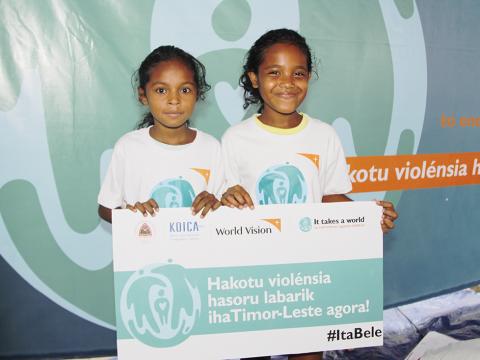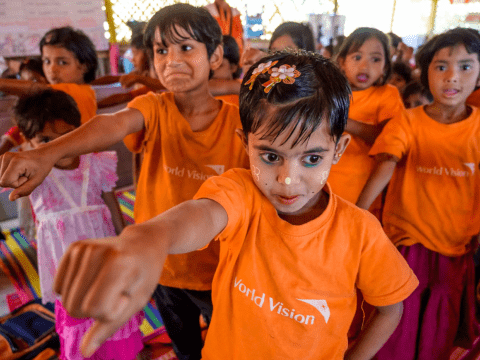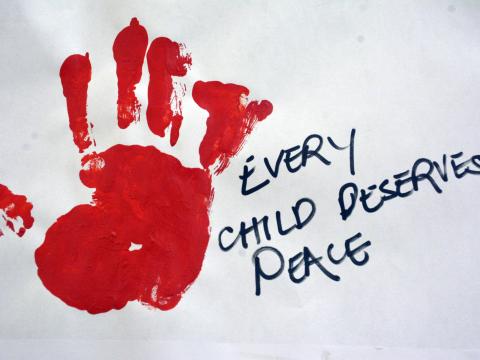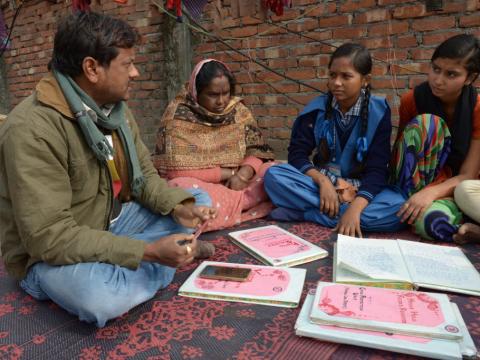
Last Week, Today, and Tomorrow: A Call to End Violence Against Children
Tamara Tutnjevic says the movement to end violence against children is gathering real pace, but still needs to become mainstream
18 November, 2024
On the World Day for the Prevention of and Healing from Violence Against Children, I find myself reflecting on how far we’ve come—and the pieces of a puzzle finally coming together. Last week, at the first Global Ministerial Conference to End Violence Against Children, I felt that unique sense of shared purpose as governments, donors, celebrities, survivors, and children themselves all stepped forward with a singular aim: to end violence against children.
The commitments made at the conference were truly inspiring. Nearly 50 countries pledged to invest in parenting support and school-based programs to prevent violence. Tanzania announced plans to establish Child Protection Desks in all 25,000 of its schools—a game-changer for ensuring children's safety in learning environments. Spain committed to a new digital law to safeguard children online, while the Solomon Islands vowed to raise the legal age of marriage from 15 to 18 years. The UK, alongside partners, will lead a new Global Taskforce on Ending Violence in and through Schools. These are just a few examples, but each represents a tangible step toward a world where children are free from fear.
It was clear that the momentum we’ve been building for years is accelerating. Eight years ago, we launched the It Takes a World campaign, determined to make ending violence against children a priority for everyone, everywhere. Over its course, the campaign contributed to over 1,700 policy changes to protect children. These victories are not ours alone—they belong to the communities, advocates, and children themselves who have made their voices heard. Our campaign ended, but now we see these changes gaining traction, amplified by a growing coalition of actors across sectors and countries.
Here in Cyprus where I live, the government has just launched a campaign to address violence in schools and sexual violence against children. The plans include teacher training, anti-violence curricula, and systems to ensure abuse is reported and acted upon. These efforts reflect a growing determination worldwide to tackle violence wherever it occurs.
Even in spaces once resistant to change, progress is happening. Just weeks ago, the Archbishop of Canterbury resigned, acknowledging moral responsibility for mishandling child abuse cases within the Church of England. His resignation signals a shift: the world is no longer willing to ignore or excuse failures to protect children. Accountability is becoming the new norm.
Many years ago, someone asked me, “How will you know the dial has moved to end violence against children?” My answer came instinctively: ‘When John Oliver devotes an episode of ‘Last Week Tonight’ to this cause.” It was a half-joke, but also not. For real change to happen, the issue must break through into the public consciousness, becoming impossible to ignore and tolerate.
Now, John, it’s your turn. The world is moving—governments, faith leaders, donors, and communities are stepping up. Survivors, parents, and children are refusing to stay silent. It’s time for every platform, every voice, to add its weight to this cause. Together we can create a world safer for children.
Learn more about World Vision's work to protect children here
Tamara Tutnjevic is World Vision’s Senior Director, Public Policy. Follow Tamara at x.com/@ttutnjevic_vac


